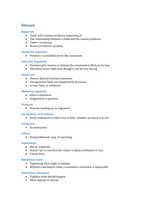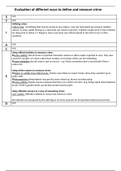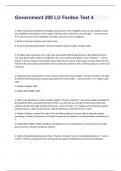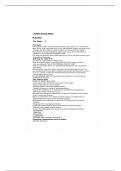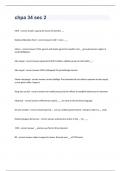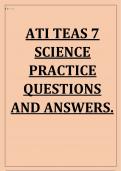Summary
Summary PHI1025F Critical Thinking Exam Study Notes. All content included
- Course
- PHI1025F Critical Thinking
- Institution
- University Of Cape Town (UCT)
Summary of all content covered in phi1025 (critical thinking) The notes are made from my lecture notes and the info in the provided textbook
[Show more]
